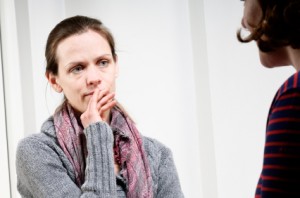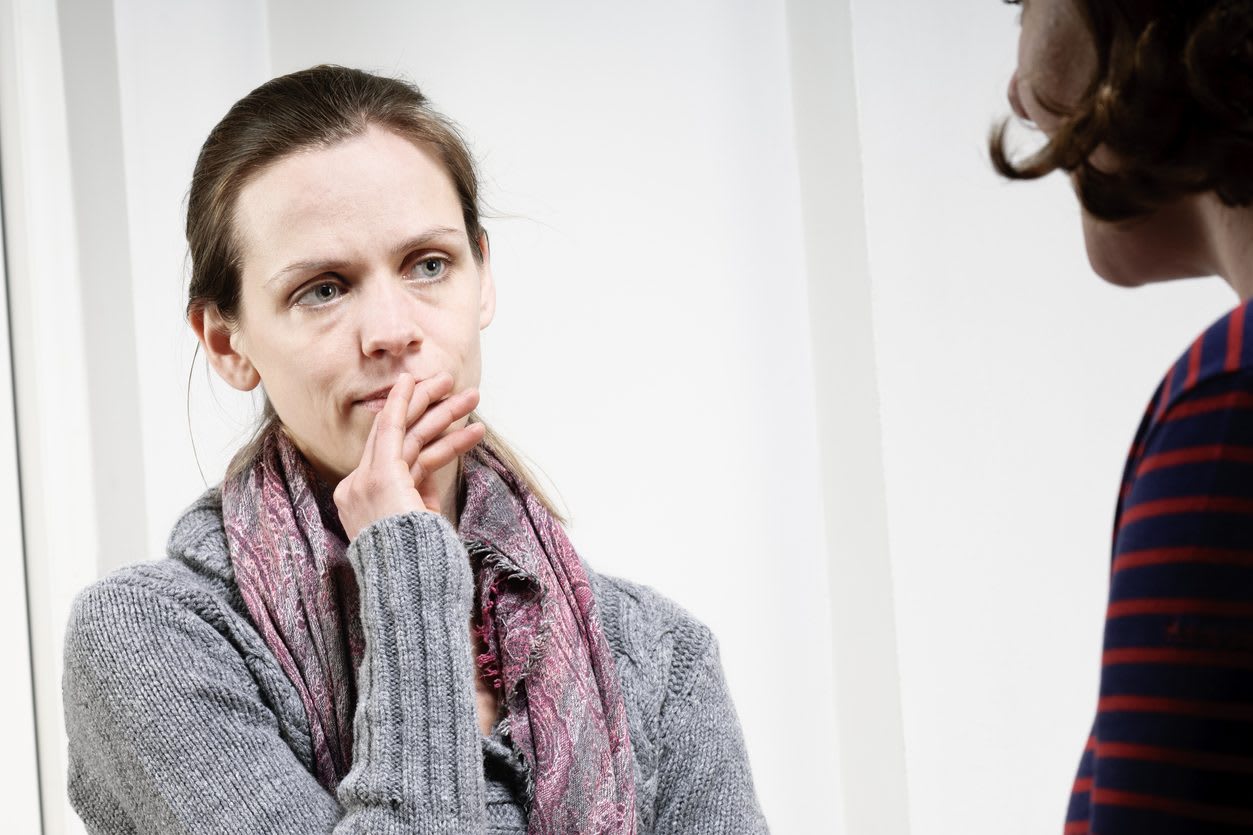Recently I attended a meeting in an Orthodox-run mental health outpatient clinic (in layman’s terms, a place where people go for therapy) in a frum (religiously observant) area.
I was amazed and delighted to see how beautifully tailored it was to the needs to of its clientele. Signs were in English, Hebrew and Yiddish; informational posters showed only modestly-dressed men and women; the waiting room even had separate cubicles for clients to be able to wait privately without having to run into their friends, aunts and neighbors (which we all know is inevitable in the Jewish world). Score one for this clinic, I thought to myself.
On the way out, I passed by the cubicles again and felt slightly less positive about the separations. By the time I had gotten back home, I was positively indignant. I decided that, while the sensitivity to the clients was admirable, the message that the clinic was sending was inappropriate, even harmful.
 The clinic was endorsing the idea that there is something shameful about going to therapy, that it is some kind of dirty secret, and that nobody should know if you go. Heaven forbid you do run into someone – hence, we’ve constructed floor-to-ceiling two-by-fours to hide out in while you wait.
The clinic was endorsing the idea that there is something shameful about going to therapy, that it is some kind of dirty secret, and that nobody should know if you go. Heaven forbid you do run into someone – hence, we’ve constructed floor-to-ceiling two-by-fours to hide out in while you wait.
This, I am convinced, is the wrong message.
There is a pervasive belief out there – especially among segments of the Orthodox community – that therapy is only for people who have “serious” problems. People in therapy must have major mental illnesses, or else they are survivors of child abuse, or some other devastating, traumatic issue. And of course, nobody wants to be known as having mental illness or a history of abuse: in our community, unfortunately, that sort of stigma can be crippling. In many circles families feel compelled to hide or minimize mental illness, abuse, and other “problems” in their family tree, lest the children’s marital prospects, their shidduchim, suffer.
It should be obvious that this stigma must be rejected and eradicated: Those who suffer or have suffered from traumatic events and illnesses are no more at fault for that than are people who suffer from cancer, Alzheimer’s or Crohn’s disease, and they need our help, love, and compassion just as much, if not more.
But it’s not only those who have suffered from major trauma and illness that are harmed by this stigma; all of us are. Those who might wish to seek out therapy at any point in their lives, who need a little support, who want a trained professional to help them work out their issues, large and small, must contend with how they will look to others and how they will be treated. Too often that consideration is overwhelming, and people refrain from getting they help and support they could very well use.
The truth is that therapy can be enormously helpful for everyone. Ever wish you could manage your stress better? Or that yom tov (holidays) with the family could be less emotionally taxing? Maybe you’re just having trouble – like the rest of us – balancing work and family, investing time into the kids and into your own personal growth, and you want to develop a better plan.
Therapy, it has been said, is like an educational seminar on YOU. Topics include, “What are my strengths and weaknesses? What are my goals? How can I reach them?” I don’t think there is anyone who would not benefit from some time spent one-on-one with a professional who can help him objectively look at himself.
And yet, unfortunately, one of the major obstacles holding back the average person from taking some time for personal therapy is this stigma, this implication that “if I’m in therapy, something must be wrong with me.” That’s a label that nobody wants.
I myself have been in therapy a number of different times, and while I may not share with you the specifics of the subjects I discussed, I am not ashamed to talk about the experience. The first time I went for therapy was in college when I was having trouble making friends. The counselor I saw helped me figure out how I could do things differently to change my social patterns. It was wonderfully freeing. I would wish the same kind of experience on anyone.
The Orthodox clinic I visited was sending the very opposite of this message. Instead, they were signifying that going for therapy is shameful and should indeed be concealed. I fear that this message hurts clients, potential clients, and the entire community.
Now, I am not judging the directors of this clinic. Having worked in a Jewish Family Service agency myself, I am fully aware that some people feel uncomfortable waiting in a public room. No doubt some people choose not to seek therapy out of fear of being seen and recognized. This clinic likely opted to serve clients in a way that would invite them in, not scare them away. I hear that. I myself run a counseling service online in which I advertise confidentiality as one of the benefits. Of course, there is no waiting room where I work; it is inherently very private. But I don’t think I would purposely build a “cubicled” waiting room.
At the same time, however, I am concerned that they are perpetuating the hurtful trend of secrecy that keeps others out. Meeting the need for anonymity of some, or even many people in the community is ultimately a short-term gain. It leads to people seeking out help only if they can be guaranteed confidentiality, or else when they have reached the point of total desperation. The long-term perspective would instead lead us to try to dismantle these barriers by insisting that therapy is good and healthy and nothing to be ashamed of.
This long-term approach may cause some people to avoid the clinic entirely; but years down the road, we could hope that fewer people would feel the need to hide their presence there. We could build a world for our children where they would be allowed to seek help when small problems arise, before they turn into crises, without wondering whether it would reflect badly on them. Just the opposite –seeking help when one needs it is not a sign of weakness but of humility, courage, and strength.
Rabbi Raffi Bilek, LCSW-C, is a counselor and speaker in Baltimore, Maryland serving clients all over the globe. Find him online at www.frumcounselor.com or www.BaltimoreTherapyCenter.com.
The words of this author reflect his/her own opinions and do not necessarily represent the official position of the Orthodox Union.

